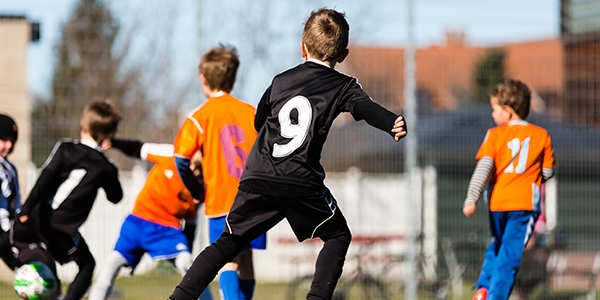
Sports can be a Great way to Build a Relationship
Parents who coach their kids can build strong bonds and support their development. Balancing the roles of parent and coach is challenging and can cause tension if not managed well. Parents who coach should avoid favouring their child, focus on the whole team, and be realistic about abilities. Good coaching requires patience and teaching skills, not just athletic experience.
Parents can develop a strong relationship with their kids by attending games, practicing with them or even coaching them. Some parents may decide that coaching their kids is a chance to spend more time with them.
Coaching can be a very rewarding experience for parents. It’s an opportunity to help your young athletes reach their goals and teach them new skills. Parents can also become more familiar with the youth sport environment through coaching. This will help parents understand more about the challenges kids may experience in athletics.
However, you may experience conflicts with your children when they can’t separate the roles of parent and coach. Younger kids may have an even more difficult time separating these roles. Kids may not understand why their parent (not coach) is upset with them during a game, for example.
Parents may also have a difficult time separating these roles. Parents may want to give their children sports instruction or talk about the game at home. Parents may also want to discipline their children on the field. The best way to avoid this conflict is to leave your coaching role on the field and be a parent at home.
Parents who decide to coach their kids should consider the following:
1.Avoid Favouring Your Child
Do not give your child more attention than other players. Parent coaches may think coaching is an opportunity to personally coach their kids. Parents who give their child more attention or play favorites undermine their ability to coach. Some players may not listen to your instruction, for example. Parents should be realistic about their kids’ talents to avoid giving their children more attention.
2.Focus on the Whole Team
Improve each player’s skills rather than just your own children’s. Parents should not only be their kids’ cheerleader, but should focus on encouraging the whole team. Make sure your athletes understand that you can’t be their cheerleaders all the time. You need to attend to the other players.
3.Don’t Be Overly Demanding
Do not be too strict with your children. Kids may feel added pressure if their parent is coaching. Kids may feel that they can’t make mistakes. They may try to avoid disappointing parents. Make sure you ask your kids what they think about you coaching their team.
4.Know the Game and How to Teach It
Take your knowledge of the sport into consideration. Parents who were good athletes are not necessarily good coaches. Coaching requires knowledge of the sport, teaching ability, and patience.
5.Prepare for Parent Pushback
Be prepared to deal with parents. Expect that parents will have concerns about playing time and practice schedules. Parents will likely question your coaching decisions even if you do not favor certain players. Parents should develop a plan to deal with these situations.
Related Sports Psychology Articles
- How Youth Sports Coaches Can Build Resilience in Kids
- Helping Kids Perform Their Best in Sports at Crunch Time
- Helping Young Athletes Stay Calm
*Subscribe to The Ultimate Sports Parent Podcast
*Subscribe to Peak Performance Sports on Youtube
Download a free sports psychology report to improve your mental game!
Sports Psychology Coaching for Young Athletes

One-on-one mental performance coaching is the fastest and most effective method to improve your athletes’ mental game, boost their performance, and make lasting changes. And as a bonus, parents learn what to say to help young athletes feel confident and thrive in sports. Please call us at 888-742-7225 with your questions.
FAQ: Parents Who Coach
Q: What challenges do parents who coach often face?
A: They may struggle to separate their roles as parent and coach, which can create tension with their children both on and off the field.
Q: How can parents who coach avoid favoritism?
A: Treat all players equally and focus on improving every athlete’s skills, not just their own child’s.
Q: Should parents who coach be strict with their children?
A: No. Being too demanding can increase pressure. It’s important to allow kids to make mistakes and feel supported.
Q: Is being a good athlete enough to be a good coach?
A: No. Coaching requires knowledge, patience, and teaching skills beyond just playing ability.
Q: How should parents who coach handle concerns from other parents?
A: Expect questions about playing time and decisions. Have a clear plan to address concerns fairly and maintain team harmony.
Kids Sports Psychology expert Patrick Cohn, Ph.D. has helped athletes for over 35 years to enhance their performance. Dr. Cohn earned a master’s degree in sports psychology from CSUF and a Ph.D. from the University of Virginia, specializing in Applied Sports Psychology. Today, he is the president and founder of Peak Performance Sports, LLC in Orlando, Florida.
